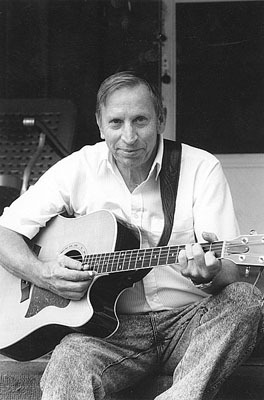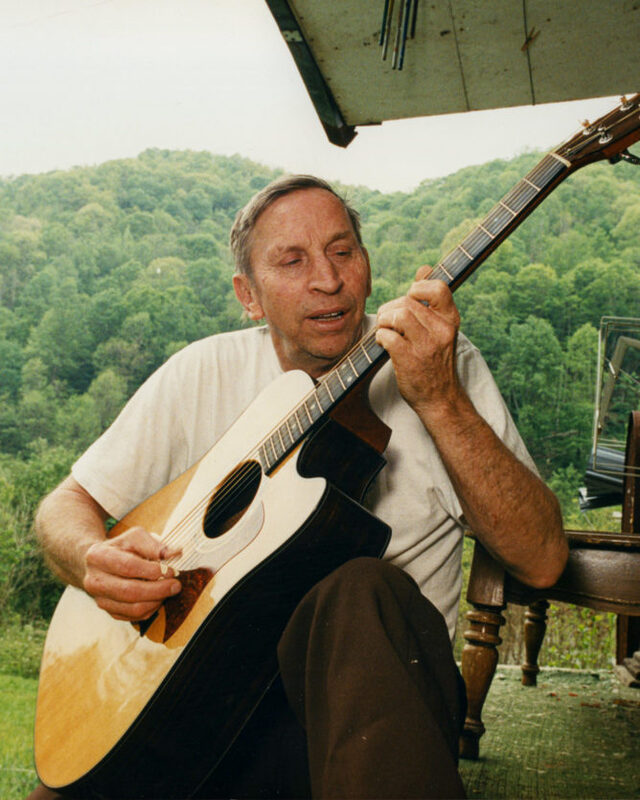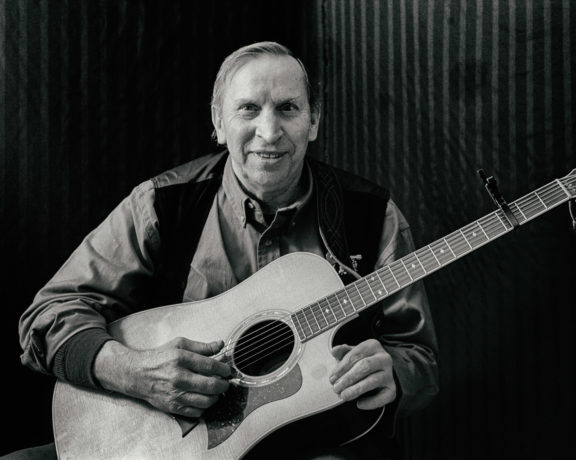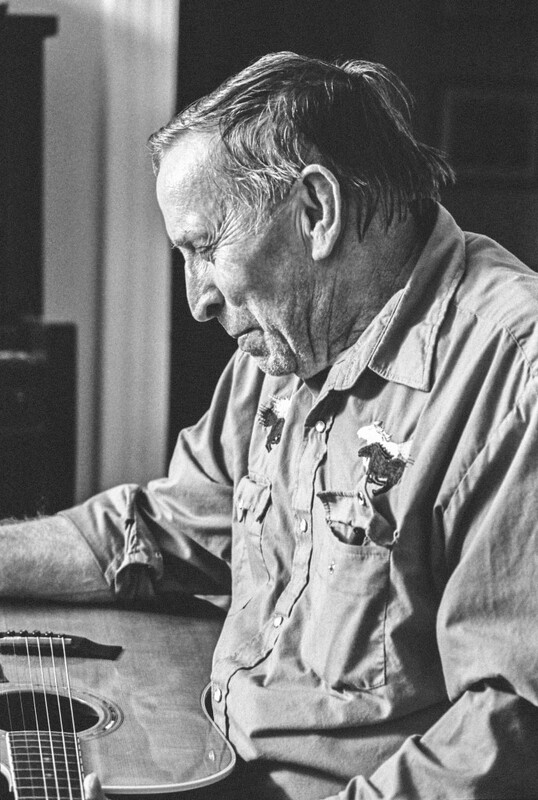Carl Rutherford
Carl Rutherford was born April 25, 1929 in War, WV. Born with the serious condition of spina bifida, it was uncertain whether he would make it past infancy, however, according to an article by Deborah Schwartz, Carl said, “my mom just plain loved me to life. The reason I enjoy life so much is because every bit of it is borrowed time.” Carl grew up with a deep sense of his mountain heritage. He worked in the mines, following his father who was a miner and union organizer, and he was very involved with the music and instruments of the mountains, carrying these stories with him in song throughout his life. Carl learned slide guitar from his uncle, Will Muncy, and also played rhythm guitar, lead guitar, bass, dobro, and banjo.
In an excerpt from Coalfield Blues, Jim McGee wrote of Rutherford’s music:
Some guitarists have carried the coalfields guitar tradition into the 21st century. One was the late Carl Rutherford, from Warriormine in McDowell County, who learned guitar from his family, particularly his uncle, Will Muncy, who owned reissued records of Frank Hutchison. In 1942, Rutherford learned to play in the same tunings that Hutchison, Leonard Copeland, and Jess Johnson used. Muncy showed Rutherford how to play guitar with a closed Case knife, just as Hutchison had done.
Rutherford’s kinfolk who played banjo also influenced his finger-picking guitar style. He said the thumb-and-finger banjo picking of his mother and his Uncle Will gave him the idea of picking the guitar with his thumb and forefinger. In Rutherford’s guitar picking, the thumb played an alternating bass rhythm while the first finger played melody. Thus both recordings and oral tradition have spurred the creative development of mountain guitar styles.
At age 18, Carl began work in the mines for the Olga Coal Company, despite his illness. According to an article for Music Maker:
Only two weeks after he started the job, he witnessed a deadly accident in the mines and had to spend a week attending the funerals of his co-workers who died. The event traumatized Carl. He didn’t want to return to the mines but went back anyway for two years to help his father pay off a debt on a piece of land. Check out his song “Turn Off the Fear” for a vivid and chilling description of work in the mines.
Upon finishing his time in the mines, Carl shifted to work in logging camps, relocating near Redding, California. During his time away from West Virginia, Carl continued to dedicate himself to music, honing his skills and performing in honky-tonks. His mother’s illness brought him home in the 1970s where he continued his crusade for music, starting a music school to teach music to local kids and keeping up his determined efforts to bring light to the plight of those living in the West Virginia coalfields.
Carl was a master guitarist, singer and Dobro player who blended the styles of traditional mountain music, gospel, blues, and country music. But after all his years of mine work, he suffered from black lung and emphysema, and after his final recording session with Music Maker in the mid-2000s, he headed back to California to spend time with his children and first wife. He then returned to West Virginia, where he passed away under the care of his beloved second wife, Frankie. Music Maker helped to honor Carl’s request that his body be donated to Duke University for medical study.
“I’d like to leave an afterglow of smiles when life is done,” he told his cousin, Hershel Muncy, before passing from emphysema on January 28 in a Bristol, California hospital.
Going Down The Road - YouTube
-
Written by Melissa Nichols
Sources:
- Remembering Carl Rutherford by Deborah Schwartz at http://appvoices.org/2006/04/01/2837/
- Musicmaker.org artist profile for Carl Rutherford
- Vandalia Award Winner Gallery at wvculture.org
- Coalfield Blues by Jim McGee at https://www.wvencyclopedia.org/articles/1372
- Capturing Blues in Black and White by Frank Carlson – Tim Duffy photo collection of musicians at https://www.pbs.org/newshour/arts/capturing-the-blues-in-black-and-white
- Carl Rutherford: Music from the Coalfields by Jim McGee, Goldenseal, Volume 20, Number 3, pgs 30-37. (Many of the other articles seem to rely on and pull from the information and quotes relayed in this article.)



